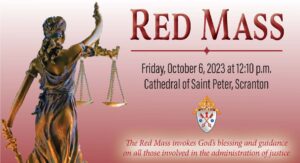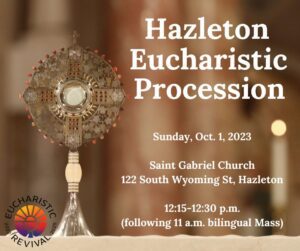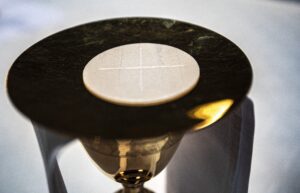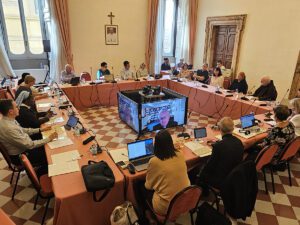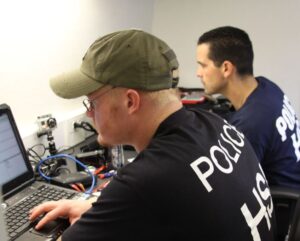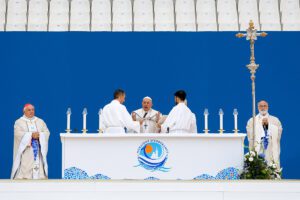VATICAN CITY (CNS) – Coming from different parts of the world and having different experiences and talents, members of the College of Cardinals are called to create a “symphony,” listening to one another and to the Holy Spirit, Pope Francis said.
Creating 21 new cardinals from 16 nations Sept. 30, the pope used the biblical story of Pentecost to remind the prelates of the roots of their faith, and he invoked the image of a symphony to emphasize their call to be both faithful and creative.
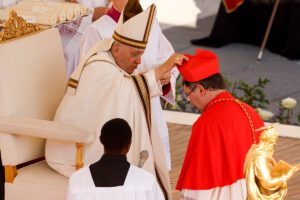
On a warm autumn morning, with shrubs and flowers decorating the steps of St. Peter’s Basilica, Pope Francis held his ninth consistory to create new cardinals. The Vatican said 12,000 people attended the ceremony.
Cardinal Robert F. Prevost, the 68-year-old Chicago-born prefect of the Dicastery for Bishops, was the only U.S. prelate to receive his red hat at the consistory. He was joined by French Cardinal Christophe Pierre, the 77-year-old nuncio to the United States.
Cardinal Luis Pascual Dri, a 96-year-old Capuchin friar from Argentina, was made a cardinal when the pope proclaimed his name at the consistory, but he did not travel to Rome to receive his red hat because of his health.
With the consistory, the College of Cardinals has 242 members from 91 nations, according to Vatican statistics; 137 of the cardinals are under the age of 80 and eligible to vote in a conclave to elect a new pope. The so-called “cardinal electors” come from 71 countries.
Italy — with 49 cardinals, of whom 14 are electors — continues to dominate the cardinal counts. The United States is second; according to the Vatican, there are 17 U.S. cardinals, including 11 electors. The total would be 18 when counting Italian-born Cardinal Silvano Tomasi, a former Vatican official, who is a U.S. citizen.
At the beginning of the ceremony, Cardinal Prevost thanked Pope Francis on behalf of the new cardinals, noting how the consistory was taking place just before the opening of the assembly of the Synod of Bishops on synodality.
“The church is fully such only when it truly listens, when it walks as the new people of God in its wonderful diversity, rediscovering continually her own baptismal call to contribute to the spread of the Gospel and the kingdom of God,” he said. “The beauty of the universality of the church that will be manifested in the unfolding of the synod will be a very important sign, which will be able to speak of the mission that all of us baptized have received, in communion with the successor of Peter and in the profession of the same faith.”
Before receiving their red hats, their cardinal’s rings and the names of their titular churches in Rome — an assignment that makes them formally members of the clergy of the Diocese of Rome — the new cardinals made a profession of faith, reciting the Creed in Latin, and made an oath of fidelity to Pope Francis and his successors.
Cardinal Prevost, a former superior general of the Augustinian religious order, was given the Church of St. Monica, mother of St. Augustine.
In his homily at the consistory, a prayer service that lasted just over an hour, Pope Francis drew the prelates’ attention to the Pentecost story in the second chapter of the Acts of the Apostles and particularly to its listing of those who heard the apostles, each in their own language although they were “Parthians, Medes, and Elamites, inhabitants of Mesopotamia, Judea and Cappadocia, Pontus and Asia.”
“Normally we pastors, when we read the account of Pentecost, identify ourselves with the apostles,” the pope said. But if the cardinals recognize themselves as members of the crowd, he added, they would “rediscover with amazement the gift of having received the Gospel” in their own languages and would give thanks for having been evangelized among their own people, often by their mothers or grandmothers.
“Indeed, we are evangelizers to the extent we cherish in our hearts the wonder and gratitude of having been evangelized, even of (still) being evangelized, because this is really a gift always present, that must be continually renewed in our memories and in faith,” the pope told them.
In humility, and with that diversity, he said, “the College of Cardinals is called to resemble a symphony orchestra, representing the harmony and synodality of the church.”
Pope Francis said he referred to “synodality” not only because the synod assembly was set to open Oct. 4, “but also because it seems to me that the metaphor of the orchestra can well illuminate the synodal character of the church,” which relies on each member making a contribution, occasionally as a soloist, but usually in harmony with others.
“Mutual listening is essential,” he said. “Each musician must listen to the others. If one listens only to himself, however sublime his sound may be, it will not benefit the symphony; and the same would be the case if one section of the orchestra did not listen to the others, but played as if it were alone, as if it were the whole.”
“In addition,” the pope said, “the conductor of the orchestra is at the service of this kind of miracle that is each performance of a symphony. He has to listen more than anyone else, and at the same time his job is to help each person and the whole orchestra develop the greatest creative fidelity: fidelity to the work being performed, but also creative, able to give a soul to the score, to make it resonate in the here and now in a unique way.”
“We have the Holy Spirit as our master: the interior master of each one of us and the master of walking together,” Pope Francis said. “He creates variety and unity; he is harmony itself.”

